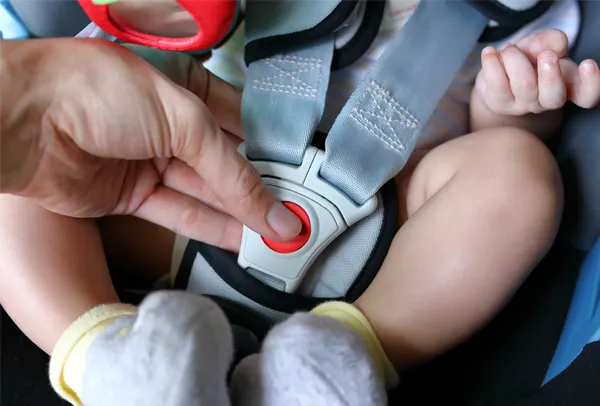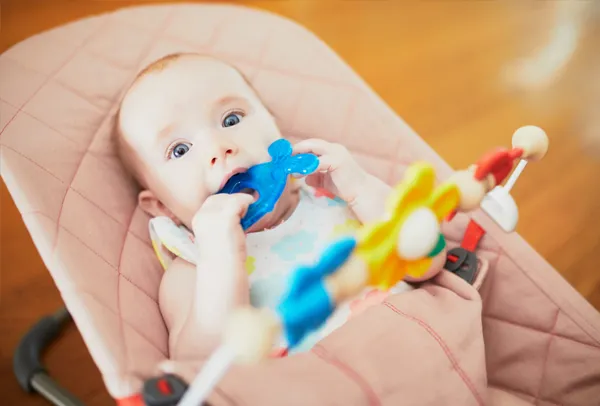
Container Baby Syndrome (CBS)
CBS is an umbrella term for physical and developmental problems caused by a child spending too much time in a baby container.
As a parent you’ve surely noticed the variety of baby equipment that is sold in baby shops: nursing pillows, sleepy heads, cocooners, snooze pods, cushions, loungers, bouncer chairs, exersausers, swings, seats, jumpers, walkers, etc.
These products look very colorful and attractive and come with straps, music, flashlights, vibration and rocking options. They promise to keep your baby safe on their back, entertained and stimulated at the same time. They are a convenient way to create ‘hands free’ time for parents or to keep babies safe from enthusiast siblings and pets.

OVERUSE of these equipments is a big problem lately. If throughout the day, a baby is switched from one container to the next and is always strapped up safely on its back, the opportunity it gets to move is reduced.
This LACK OF MOVEMENT can quickly lead to underdeveloped muscles, physical stamina and developmental problems:
- Decreased strength, balance and coordination causing delays in motor development: poor head control, not rolling over, dislike for tummy time,
- Preference for one side in combination with a tilted head: torticollis
- Tightness and asymmetry in the whole body: irritable stiff babies that arch a lot.
- Development of flat spots on the back of the head sometimes in combination with facial deformities: plagiocephaly
- Sensory processing difficulties, visual tracking problems
From birth onwards a baby needs to LEARN TO MOVE, to develop strength, balance and coordination to achieve milestones.
Help your baby by creating safe situations where it gets the opportunity to move, to explore, to practice, to work against gravity. Stimulate them to lift, hold and turn their heads, to kick, to push of and to wiggle in different positions.
Offer your baby ‘horizontal time’ on a play mat, on the floor, in a play pen. When awake, alternate between prone, supine and time on the side. Use a baby carrier or carry your baby in different positions.
Be mindful over the amount of time your child spends in a container at home and in daycare.
To book an appointment with Ms. Brenda Steegmans (Pediatric Physiotherapist), please call 800 4272 or email [email protected]









